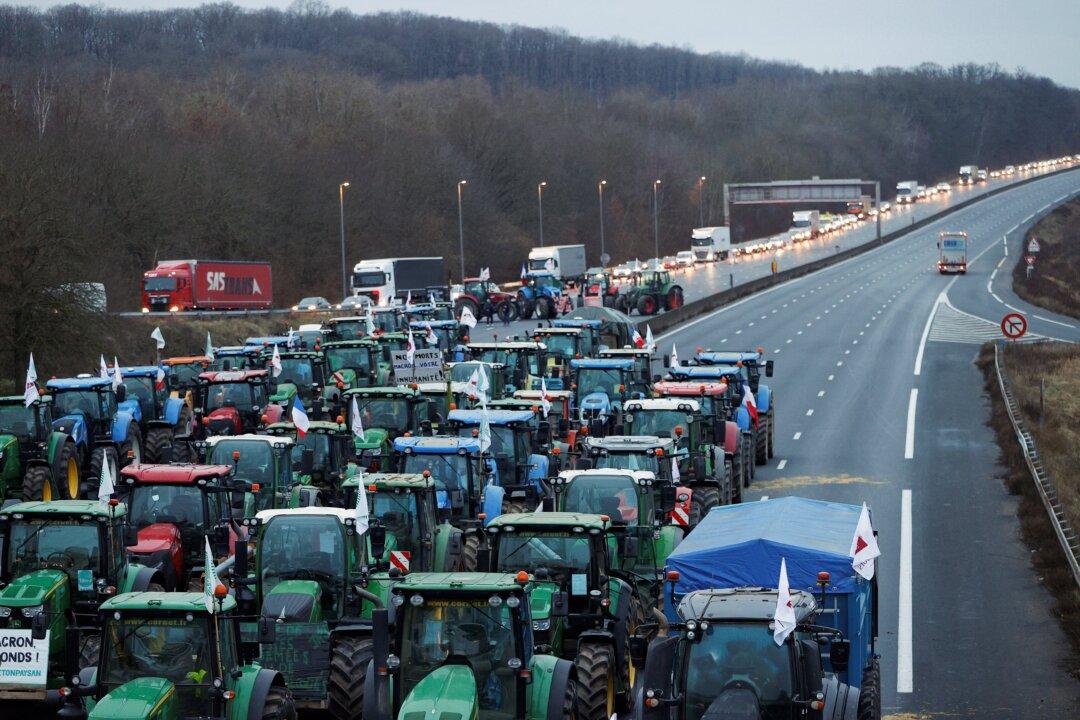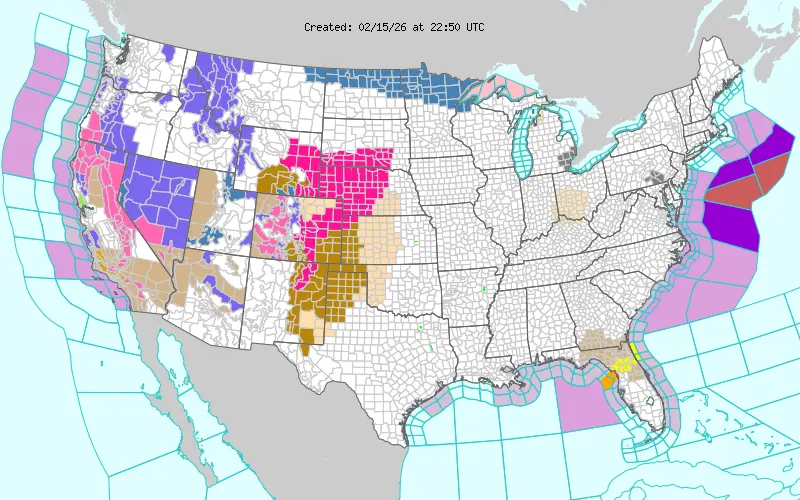JOSSIGNY, France—France’s new prime minister showered promises of help on angry farmers Tuesday, from emergency cash aid to controls on imported food, in hopes that cools a protest movement that has seen tractors shut down highways across France and inspired similar actions around Europe.
Farmers seeking better pay, fewer constraints, and lower costs are camped out on hay-strewn highways and encircling Paris, posing the biggest challenge to Prime Minister Gabriel Attal since his appointment less than a month ago. He sought to assuage their concerns in a sweeping policy speech Tuesday at the National Assembly.





